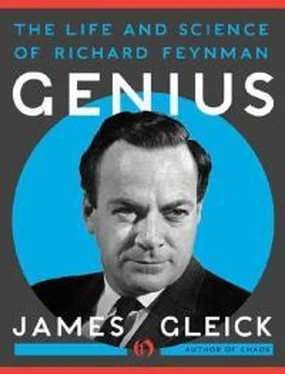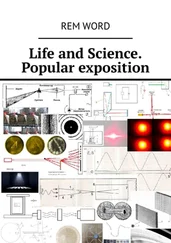He would sponsor her with the immigration authorities and pay her twenty dol ars a week. It seemed to her that he was not behaving like a forty-year-old; nor like other Americans she had met. She said she would consider it, and an unusual courtship began.
“I’ve decided to stay here after al ,” she wrote him that fal .
One of the boyfriends, Johann, had decided to marry her—
out of jealousy, she suspected—
so you see what a good turn you did for me… . we talked for hours and hours, planning our life together.
We shal probably start married life living in one room… . Were you real y expecting me to come? …
You’l just have to get married again, or find a nice solid middle-aged housekeeper so people won’t gossip.
His love affairs were going badly, meanwhile. That same week a letter arrived from the other woman, making it clear that their relationship was over. She demanded money—
five hundred dol ars—“I wil be frank, the chances of your getting it al back within a year are nil.” She had asked for money before, saying that she needed it for an abortion, but now she said that that had been a ruse. His money had
actual y gone for furniture and house painting.
You were too much of the “playboy.” But I was both embarrassed & intrigued by the effects that your girl friends had on you when they cal ed you in my presence. Sometimes you left the phone, shaking & foaming at the mouth… . I recognized a baseness in you and was frightened that you took my love and affection for you cheaply, and so I wanted to compensate against that horrible feeling.
She knew too much about the women he had been seeing since his divorce. She named four of them and described an anonymous note that had come addressed to
“Occupant”:
Dirty Dick, Filthy Fucking Feynman dates you. He wil never marry you. Tel him he has made you pregnant. You’l make a quick $300–$500.
She had been devastated by nasty physicist-gossip she had overheard about Feynman and his women, Feynman and “the pox.” He should get married, she said.
The baseness you talk of is due to the fact you aren’t married. You try to sublimate your desires by attending Burlesque Shows, Night Clubs, etc. These are fun for the healthy, but only an escape for the dissatisfied. I know this, because last year you were content in Rio, & as a result produced Beta Decay… .
Find yourself a real companion, someone you can real y love & respect. Then capture love whilst it is fresh & spontaneous… .
At some point she had walked off with the gold medal he had received with the Einstein Award. She stil had it, she reminded him.
Feynman implored Gweneth Howarth to reconsider. By November, as it happened, she and Johann were no longer on speaking terms and she had begun the immigration paperwork through the United States Consulate in Zurich.
He consulted a lawyer, who warned that there were dangers in transporting women for immoral purposes and advised him to find a third-party employer; a Caltech friend, Matthew Sands, agreed to lend his name on the required documents. Feynman calculated fares (more than a year’s salary for a Yorkshire librarian, she noticed): $394.10 to Los Angeles; or $290.10 to New York and then $79.04
including tax for a bus from New York to Los Angeles.
She was excited but unsure. “You’l write & tel me if you decide to get married again, or if there is any other reason why I should not come?” She wanted him to realize she had other possibilities—Armando, whom she met skiing, or a fel ow who had been watching her at language class (“he walked part of the way home with me … I’d like it to be a platonic friendship, but I don’t suppose he wil want it like that …”) and yet there were always hints of the domestic future Feynman so craved now—she was caring for “a beautiful baby now, I wish I could have one exactly like him.”
A new friend, Engelbert, was buying skis for her; meanwhile she could now cook pheasant, chicken, goose, and hare with the appropriate sauces (“I’m improving, am I not?”).
Feynman kept hearing from the other woman, too. She was tel ing her husband everything; they had left California for the East Coast. She wanted more money. She felt used.
He let her know how angry he was. She told him, “altho’ you are clever at your own special work, you are very dim at human relationships.” She assured him that his Einstein Award medal was “safe”; also his copy of the Rubáiyát of Omar Khayyám, with drawings that had been careful y colored, so long ago, by Arline.
He begged her to come see him again. “I only mentioned my inner feelings for revenge, etc. to explain why it would
be hard to guarantee you something that you asked,” he wrote. He stil wanted to marry her.
I know where the right is—but emotions, like anger and hate and vengeance etc. are like a bunch of snakes in a barrel—with reason and good heart as a lid… . it is frightening and uncertain. Worth a good try tho.
She refused, despite the warm memories that now came back to her: building a sandcastle at the beach, surrounded by a mob of smal boys; camping under the stars at Joshua Tree National Monument, where Feynman had tinkered delightedly with his gleaming green Coleman stove. On a wet Sunday night he had shown her a battered suitcase with al of Arline’s letters and photographs. Once in a flash of anger he had cal ed her a prostitute—a cruel rhetorical weapon he had used before. “And,” she wrote, “I did enjoy my boss & my work.”
Her husband’s memories were not so warm. At a party he listened to someone tel ing a story about Feynman and blurted out that he knew a better one—but stopped. A few days later he wrote Feynman a formal letter demanding compensation. “You have taken cal ous & unscrupulous advantage of your position & salary to seduce an impressionable girl away from her husband,” he wrote.
Could Feynman not remember the harder times of his own first marriage? “You alienated my wife’s affections. You flattered her with your attentions and your gifts. You made clandestine plans for exciting vacations… . I think you should pay for indulging your selfish pleasure.” He demanded $1,250. Feynman refused.
Gweneth Howarth was reporting that Engelbert had brought cognac and chocolate to celebrate her twenty-fifth birthday; she decided to improve her shorthand and typing (“You do need someone to look after you, don’t you?”).
Feynman sent the consulate in Zurich an affidavit vouching for her (“she is an intel igent girl with a fine personality and is an excel ent cook and domestic servant”) and guaranteeing to undertake her financial support if necessary. Gweneth thanked him, mentioning that she had now met an Arab boy, beautiful y polite, but he had started to make love to her. She had to avoid Engelbert because she could not hide a love bite on her neck. She was making her way through the immigration paperwork: pages of questions designed to ensure that she was not a Communist and then—infuriating her—questions about whether she was a woman of good character where sex was concerned. From what moral high ground—and with what bureaucratic logic—did the American authorities require her to swear that she was neither a prostitute nor an adulterer?
Feynman, meanwhile, tried to placate his former lover’s husband: “… forgive her and make her happy… . your love wil be deeper for the forgiveness and greater because you each know how you have suffered.”
“Good thought,” the husband retorted, “but why don’t you apply it to yourself since you have enjoyed her for so long…
. Don’t give me the story of your parents’ teachings, society etc. for I don’t go for that.” He engaged attorneys, who sent threatening letters on his behalf. But Feynman’s attorneys advised him not to settle, guessing that the matter would fade away on its own. The last word belonged to his lover.
Читать дальше












